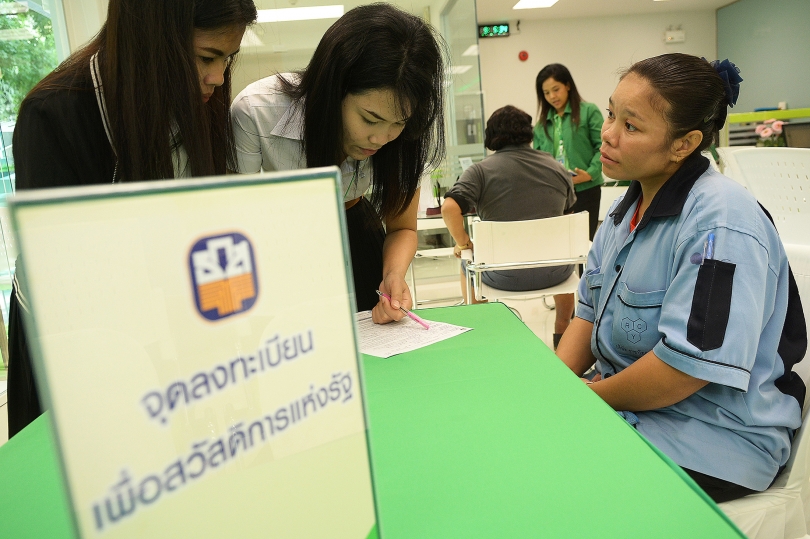Registration of poor people kicks off, activists fear stigmatisation

THE registration of people who are unemployed or low-income earners kicked off across the nation yesterday despite activists’ concerns that this measure would stigmatise the poor.
The month-long registration process will run till August 15 at all branches of the Government Savings Bank (GSB), the Bank for Agriculture and Agricultural Cooperatives (BAAC) and Krungthai Bank.
Eligible applicants must be Thai nationals, at least 18 years of age and either unemployed or have earned no more than Bt100,000 over the past year.
Applicants are required to disclose their salary, assets, debts and other related information. The government plans to use this information to design state welfare that best responds to the real needs of the poor. One example would be allowing low-income earners to get free bus or train rides.
“I am willing to disclose my information so I can claim state welfare,” Noi Kamwises, a 66-year-old farmer in Si Sa Ket province, said yesterday.
She was among the first batch of people to queue outside the BAAC branch in her hometown.
Niran Boonnet, who previously worked for non-government groups, was the first man to register at a GSB branch in Chiang Mai province.
“I think the government has come up with a good initiative. As I am getting old, I have realised that I may need to rely on state welfare,” the 65-year-old man said, adding that he hoped the government would boost job opportunities for the country’s greying population too.
BAAC branch manager Suntaree Chaisiri said the registration would pave way for the government to raise the quality of life for low-income earners on a sustainable basis.
Several non-government groups, however, said they worried that welfare would only be provided to some groups of citizens, not everybody.
“Universal benefits, such as the universal healthcare coverage, may end up being scrapped,” said Ampai Romyaparn, a representative of the People’s Health Systems Movement.
She said people eligible for welfare may end up being stigmatised, while others a bit better off financially may end up losing much-needed benefits.
Chuleeporn Duangchim, who represents Bangkok consumer networks, said she was saddened to see the government leader being so preoccupied with limiting the budget for welfare.
“Why doesn’t he look around and learn from the good welfare systems provided in other countries?” she said, noting that countries like Slovenia and Finland offer free education up to bachelor’s degree level to citizens.
Ornkanya Pumpeung, also from the People’s Health Systems Movement, said Thai leaders and civil servants should change their mindset. “Stop complaining about budget constraints. You need to realise that it is important to boost people’s quality of life.”
She believes that if Thailand manages it budget in line with human-life values and cuts down on unnecessary materialistic investments, it would be possible to provide universal welfare.
Finance Ministry sources said the database resulting from the registration of low-income people could be used to develop a system that helps provide welfare to target groups in the future. This system would be far more efficient than populist policies offered by political parties.
RELATED
